
Ngapali: Myanmar's Pristine Beach Paradise
Ngapali, nestled on the western coast of Myanmar, is a hidden gem that promises a serene escape from the hustle and bustle of everyday life. With its long stretches of powdery white sand and clear turquoise waters, Ngapali is the epitome of a tropical beach paradise. The area is dotted with palm trees and quaint fishing villages, offering a charming blend of natural beauty and local culture. The warm and inviting waters of the Bay of Bengal make Ngapali ideal for a range of water activities such as swimming, snorkeling, and kayaking. The coral reefs teeming with marine life provide an underwater spectacle for snorkelers and divers alike. For those who prefer to stay on land, the beach itself is perfect for leisurely strolls and sunbathing. Ngapali is also known for its fresh seafood, which is a must-try for any visitor. The local restaurants and beachside shacks serve up delicious dishes made from the day's catch, offering a true taste of the region. Beyond the beach, visitors can explore the nearby fishing villages, interact with the friendly locals, and even embark on a boat trip to the surrounding islands. Despite its growing popularity, Ngapali has managed to retain its laid-back vibe and natural charm. The lack of large-scale commercial development means that the beaches are often uncrowded, allowing visitors to fully relax and enjoy the tranquil surroundings. Whether you're looking for adventure or simply want to unwind, Ngapali offers the perfect setting for an unforgettable beach holiday.
Local tips in Ngapali
- Visit during the dry season from November to April for the best weather and sea conditions.
- Try the local seafood; it's fresh and prepared in traditional Burmese styles.
- Bring cash as there are limited ATMs and credit card facilities.
- Rent a bicycle or scooter to explore the surrounding fishing villages and scenic countryside.
- Book accommodation in advance, especially during peak tourist season, as options can fill up quickly.
Ngapali: Myanmar's Pristine Beach Paradise
Ngapali, nestled on the western coast of Myanmar, is a hidden gem that promises a serene escape from the hustle and bustle of everyday life. With its long stretches of powdery white sand and clear turquoise waters, Ngapali is the epitome of a tropical beach paradise. The area is dotted with palm trees and quaint fishing villages, offering a charming blend of natural beauty and local culture. The warm and inviting waters of the Bay of Bengal make Ngapali ideal for a range of water activities such as swimming, snorkeling, and kayaking. The coral reefs teeming with marine life provide an underwater spectacle for snorkelers and divers alike. For those who prefer to stay on land, the beach itself is perfect for leisurely strolls and sunbathing. Ngapali is also known for its fresh seafood, which is a must-try for any visitor. The local restaurants and beachside shacks serve up delicious dishes made from the day's catch, offering a true taste of the region. Beyond the beach, visitors can explore the nearby fishing villages, interact with the friendly locals, and even embark on a boat trip to the surrounding islands. Despite its growing popularity, Ngapali has managed to retain its laid-back vibe and natural charm. The lack of large-scale commercial development means that the beaches are often uncrowded, allowing visitors to fully relax and enjoy the tranquil surroundings. Whether you're looking for adventure or simply want to unwind, Ngapali offers the perfect setting for an unforgettable beach holiday.
When is the best time to go to Ngapali?
Iconic landmarks you can’t miss
Chaung Thar Beach
Discover the serene beauty and vibrant culture of Chaung Thar Beach, a tropical paradise on Myanmar's stunning coastline.
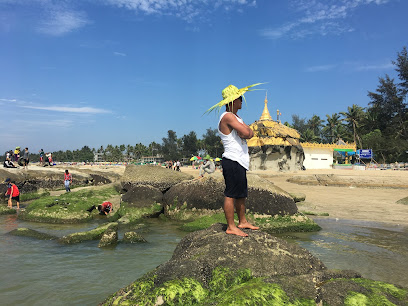
Amazing Ngapali Resort
Discover the luxury of Amazing Ngapali Resort, a serene getaway on Myanmar's Ngapali Beach, where relaxation meets adventure amidst stunning natural beauty.

Bayview - the beach resort
Discover the luxury and tranquility of Bayview Beach Resort on the stunning shores of Ngapali Beach, Myanmar's premier tropical getaway.
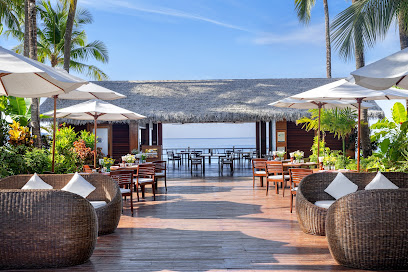
Amata Resort & Spa, Ngapali
Experience the ultimate luxury getaway at Amata Resort & Spa, Ngapali, where breathtaking views and exceptional service create unforgettable memories.

Thande Beach Hotel
Experience the beauty of Gyeiktaw at Thande Beach Hotel, a serene seaside resort offering relaxation, adventure, and cultural exploration.

Sandoway Resort
Experience serene luxury in Gyeiktaw at Sandoway Resort, where comfort meets nature in a stunning oasis-style setting.

PVI Restaurant
Explore the rich flavors of Myanmar at PVI Restaurant in Ngapali, where fresh seafood and local cuisine meet stunning ocean views.
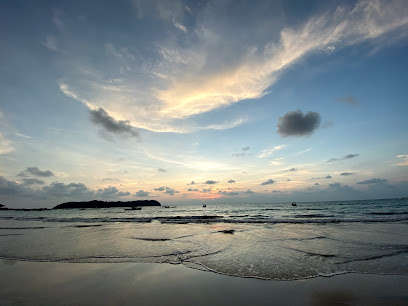
Ngapali Beach- ငပလီ
Discover the serene beauty and vibrant culture of Ngapali Beach, a tropical paradise with stunning landscapes and tranquil waters in Myanmar.

AZ Family resort hotel
Experience the ultimate family getaway at AZ Family Resort Hotel, a tropical paradise on Ngapali Beach, Myanmar, offering comfort, adventure, and local culture.

Jasmine Ngapali Resort
Experience the ultimate beachfront retreat at Jasmine Ngapali Resort, where luxury meets the captivating beauty of Myanmar's coastline.

Merciel Retreat & Resort, Ngapali
Experience ultimate relaxation and luxury at Merciel Retreat & Resort on the breathtaking Ngapali Beach in Myanmar.

River Top Lodge
Experience serene luxury and authentic Burmese hospitality at River Top Lodge, your gateway to the beautiful Ngapali Beach.

Yoma Cherry Lodge Ngapali
Discover the serene beauty of Ngapali at Yoma Cherry Lodge, where comfort meets the breathtaking shores of Myanmar's coastline.

Pristine Mermaid Resort
Discover the ultimate relaxation at Pristine Mermaid Resort in Ngapali, where luxury meets the tranquility of nature for an unforgettable getaway.
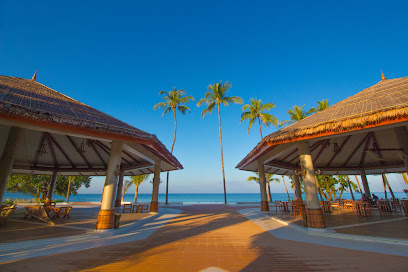
Golden Rose Seafood Restaurant
Discover the essence of Myanmar's coastal cuisine at Golden Rose Seafood Restaurant, where fresh seafood meets delightful flavors.
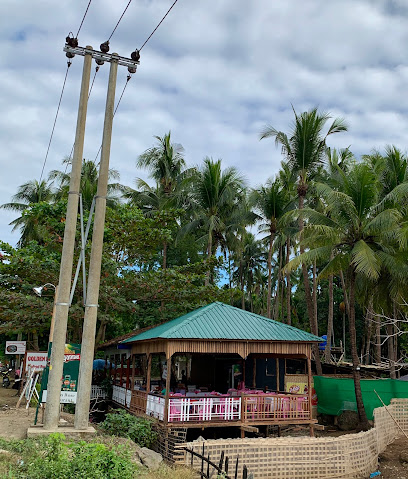
Unmissable attractions to see
Bayview - the beach resort
Discover the tropical paradise of Bayview, a luxurious beach resort on Ngapali Beach, offering relaxation, adventure, and authentic Burmese cuisine.
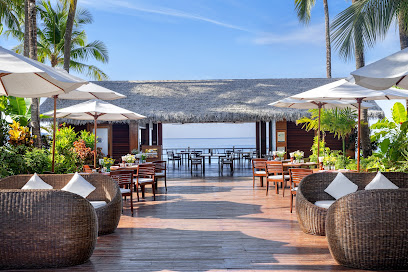
Lovers Island
Discover Lovers Island, a stunning national reserve in Ngwesaung, Myanmar, with pristine beaches and vibrant marine life for an unforgettable tropical getaway.
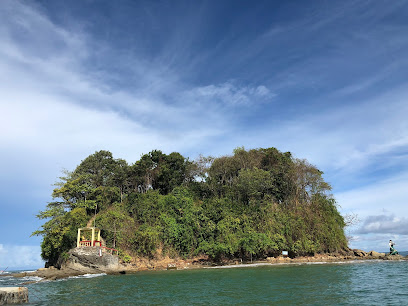
Shwe San Daw Pagoda
Discover the serene beauty and spiritual essence of Shwe San Daw Pagoda in Thandwe, Myanmar - a must-visit Buddhist temple for every traveler.
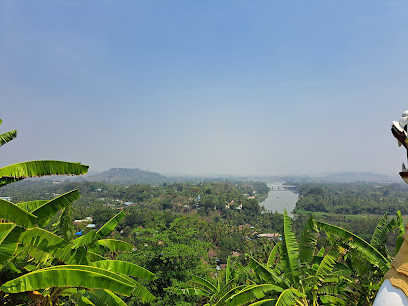
Tilawkasayambhu Buddha Statue
Experience the tranquility and artistry of the Tilawkasayambhu Buddha Statue, a must-visit spiritual landmark in Gyeiktaw, Myanmar.
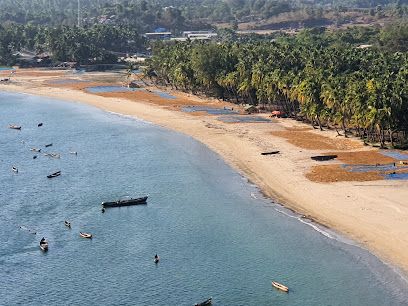
နဂါးကျောက်ဆောင်
Experience the serene beauty and rich culture of Thabyugyaing, Myanmar's hidden gem for travelers seeking authentic adventures.
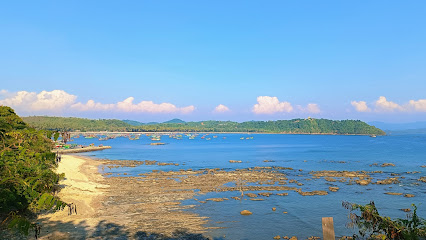
Pearl Island
Explore Pearl Island, a serene tropical getaway in Myanmar with pristine beaches, vibrant marine life, and unforgettable adventures.
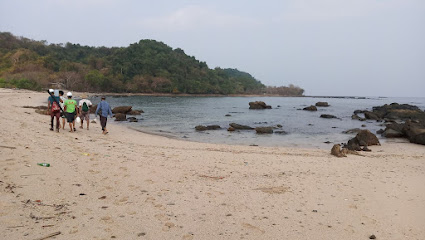
Pearl Island - Ngapali
Experience the untouched beauty of Pearl Island - Ngapali, a tropical paradise with pristine beaches, vibrant marine life, and rich local culture.
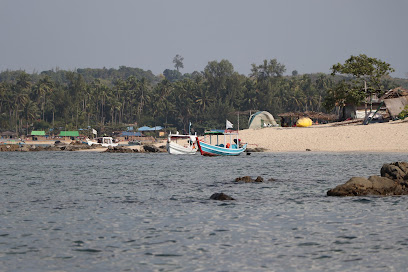
NGAPALI DAM
Experience the serene beauty and tranquility of Ngapali Dam in Thandwe, Myanmar, a hidden gem for nature lovers and culture seekers.
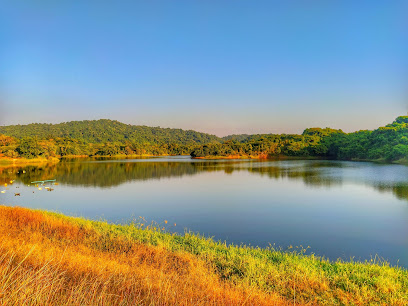
Ngapali beach(beauty beach)
Discover Ngapali Beach, Myanmar's breathtaking coastal gem with pristine sands, crystal-clear waters, and rich cultural experiences awaiting every traveler.
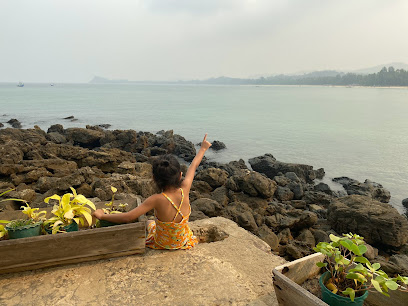
သဲဖြူကျွန်း
Explore Gyeiktaw, Myanmar: A captivating blend of culture, nature, and local charm awaits every intrepid traveler.
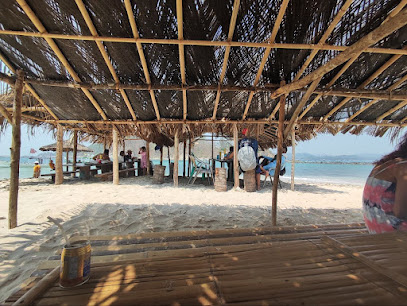
AGENT NGAPALI
Explore Ngapali Beach with Agent Ngapali, your go-to travel agency for unforgettable experiences on Myanmar's stunning coastline.
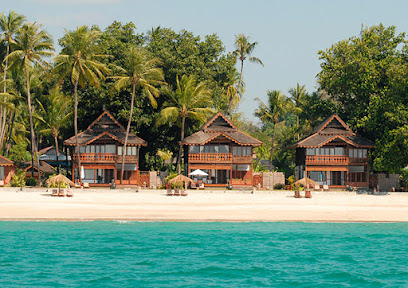
Ngapali Beach
Discover the tranquil beauty of Ngapali Beach, a top destination in Myanmar known for its soft sands, crystal-clear waters, and rich local culture.
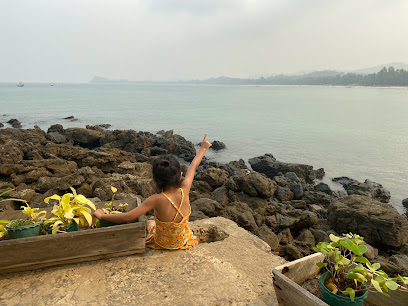
အဘဲရေပေါ်တံတား
Explore Gyeiktaw, a serene tourist attraction in Myanmar, where stunning landscapes and rich culture await every traveler.
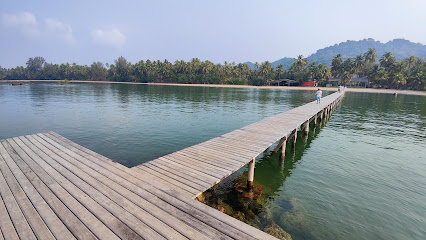
Pantai Ngapali
Experience the untouched beauty of Pantai Ngapali, a tropical paradise with pristine beaches, vibrant culture, and unforgettable sunsets.

ပြာပင်ကျောက်တန်း
Discover Gyeiktaw, Myanmar - a captivating destination blending rich culture, stunning landscapes, and warm hospitality for an unforgettable travel experience.
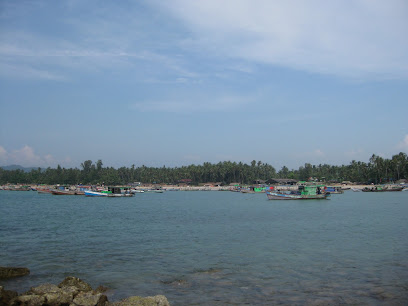
Essential places to dine
Unique Mandalay Tea Room
Experience authentic Burmese flavors at Unique Mandalay Tea Room - your perfect spot for breakfast or afternoon tea in Mandalay.
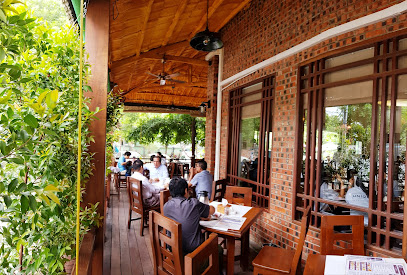
Ngapali Restaurant
Discover the authentic taste of barbecue at Ngapali Restaurant in Yangon - where local flavors meet warm hospitality.
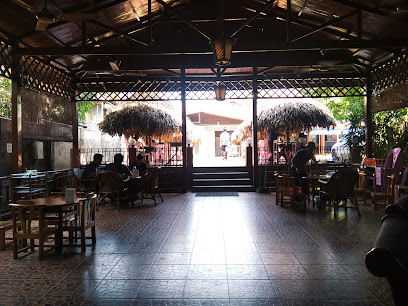
K2 Restaurant (By K K)
Experience authentic Myanmar cuisine at K2 Restaurant in Zi Phyu Kone with fresh ingredients and stunning views.
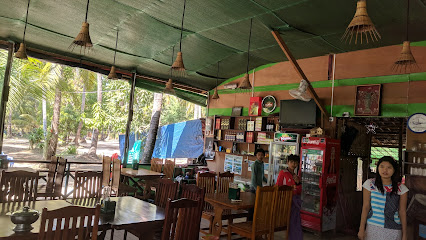
Min Thu Restaurant
Experience authentic Myanmar seafood at Min Thu Restaurant in Gyeiktaw - where freshness meets flavor in every dish.
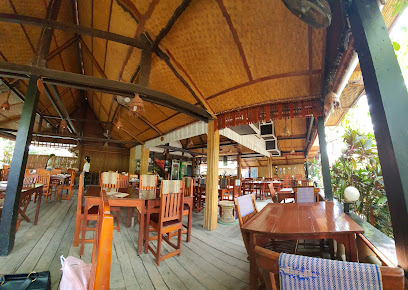
PVI Restaurant
Experience the flavors of Myanmar at PVI Restaurant in Ngapali - where local ingredients meet culinary excellence.
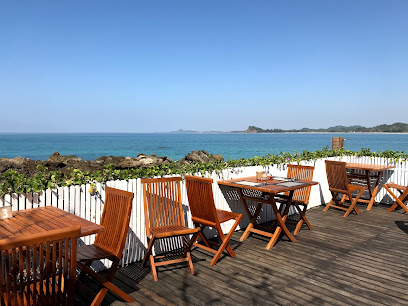
Mr.June Restaurant
Experience authentic Burmese cuisine at Mr. June Restaurant in Linthar Village – where flavor meets hospitality.
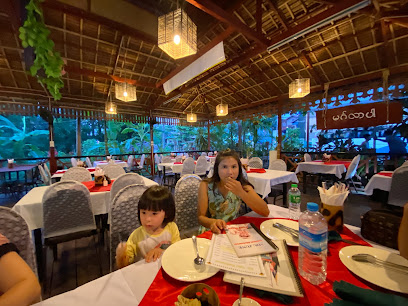
The Green Umbrella
Discover exquisite flavors at The Green Umbrella in Zi Phyu Kone – where local cuisine meets inviting ambiance.
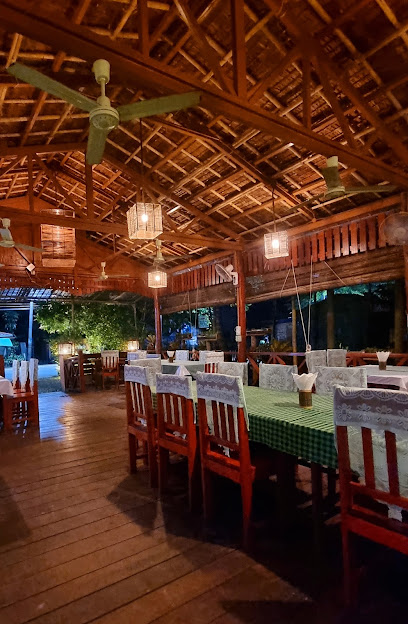
Two Brothers Restaurant
Experience the heart of Burmese cuisine at Two Brothers Restaurant in Gyeiktaw—where every dish tells a story.
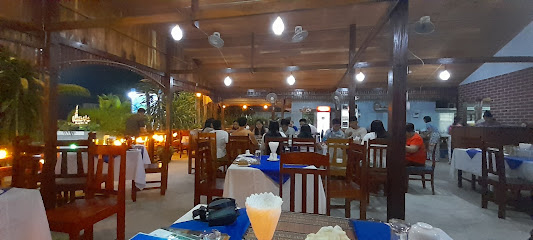
3 Pots - Seafood Restaurant
Discover the best seafood in Thandwe at 3 Pots - where every dish tells a story of the ocean's bounty.
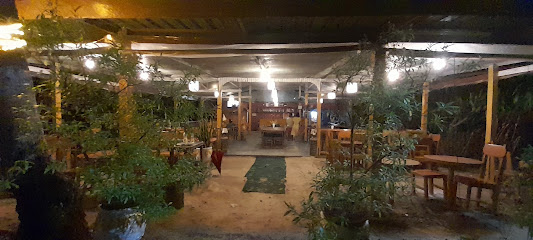
Sea Queen
Discover culinary delights at Sea Queen in Ngapali - where fresh seafood meets breathtaking coastal views.
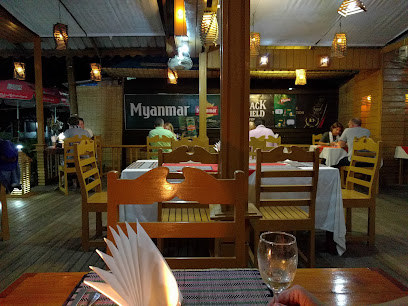
Seagull Restaurant
Discover fresh seafood delights at Seagull Restaurant in Zi Phyu Kone – a perfect dining spot with stunning coastal views.
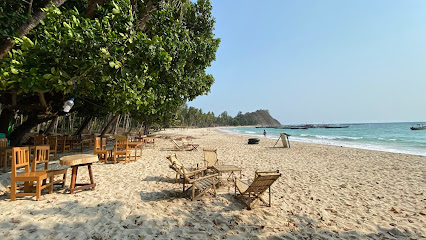
Original Sunset View Beach Bar & Restaurant
Experience breathtaking sunsets and delicious local cuisine at Gyeiktaw's Original Sunset View Beach Bar & Restaurant – an unforgettable dining destination.
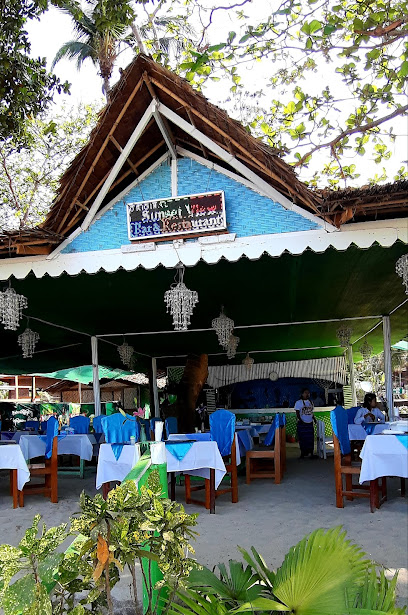
Unique Myanmar Restaurant
Discover authentic Burmese and Chinese cuisine at Unique Myanmar Restaurant in Mandalay - a culinary treasure in the heart of the city.
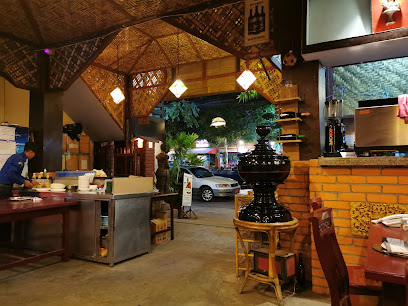
Htay Htay's Kitchen - Ngapali
Experience authentic Burmese flavors at Htay Htay's Kitchen in Ngapali - a must-visit for food lovers exploring Myanmar.
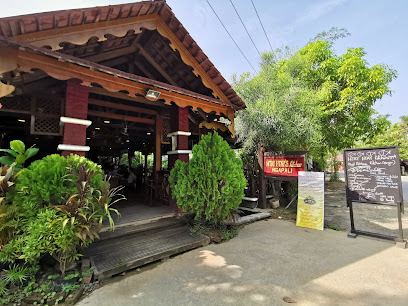
Ocean Pearl
Discover Ocean Pearl in Ngapali: where fresh seafood meets breathtaking ocean views in an unforgettable dining experience.
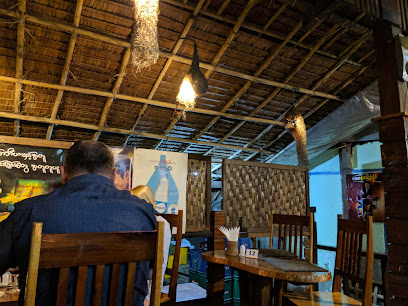
Markets, malls and hidden boutiques
Pristine Mermaid Resort
Experience luxury and tranquility at Pristine Mermaid Resort, your perfect escape to Myanmar's stunning Ngapali Beach.
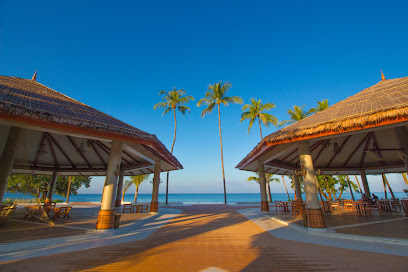
Ngapali Bay Villas & Spa
Discover the charm and tranquility of Ngapali Bay Villas & Spa, where luxury meets the idyllic beauty of Myanmar's coastline.
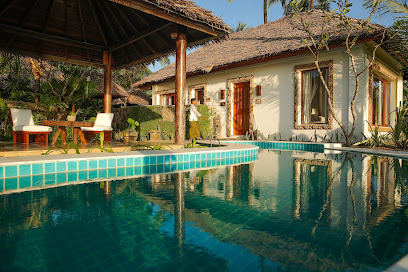
Htay Htay's Kitchen - Ngapali
Experience the vibrant flavors of authentic Burmese cuisine and unique souvenirs at Htay Htay's Kitchen in Ngapali.
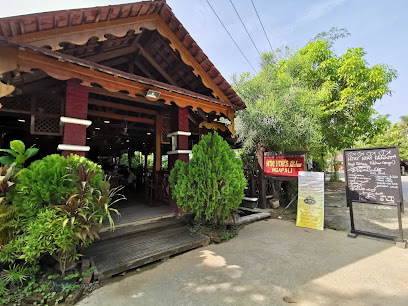
Gyeiktaw Market
Discover the vibrant Gyeiktaw Market, where local culture, delicious street food, and unique crafts await every curious traveler.
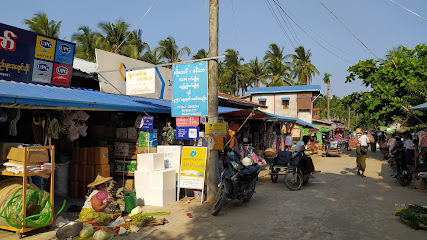
Classic Rock Cafè
Discover the vibrant atmosphere of Classic Rock Café, where coffee meets rock music in a stunning beachfront setting in Ngapali.
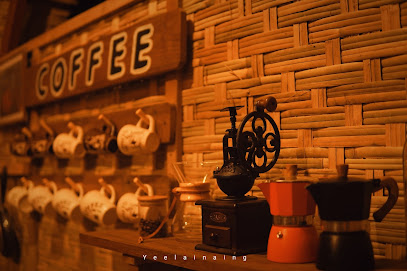
Thandwe Market
Explore the bustling Thandwe Market, a vibrant shopping destination that showcases the rich culture and local flavors of Myanmar.
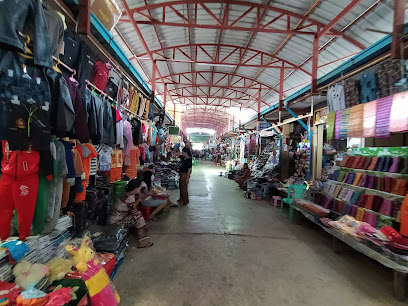
ဝင်းပုလဲ
Explore Winpule: Your gateway to exquisite souvenirs and local craftsmanship in the heart of Ngapali Beach.
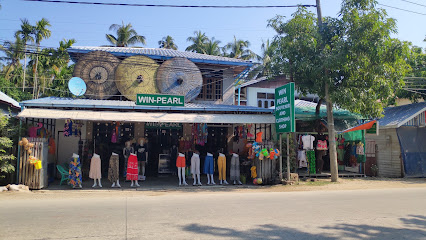
Halfway Express 24hrs
Explore Ngapali with convenience at Halfway Express 24hrs: your 24-hour grocery haven for fresh produce, snacks, and local brews.
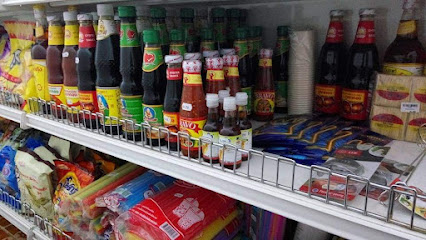
Planet Mobile Ngapali
Explore cutting-edge technology and essential gadgets at Planet Mobile Ngapali, your go-to electronics store in Gyeiktaw.

Perfect Liqure Shop
Discover Myanmar's local flavors at Perfect Liqure Shop, your go-to destination for unique beverages and rich cultural experiences.
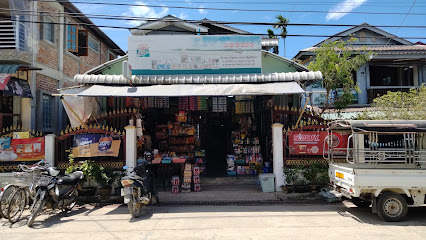
Ngapali beach
Experience the serene beauty and vibrant culture of Ngapali Beach in Myanmar, a perfect getaway for relaxation and adventure.
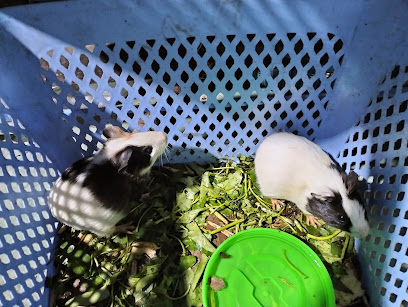
Magic Mobile (နေလင်းဇော်ဖုန်းဆိုင်)
Stay connected while exploring the beauty of Ngapali at Magic Mobile, your trusted cell phone store offering a range of mobile solutions.
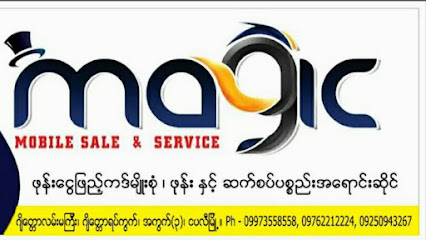
Generation Store
Discover local flavors and everyday essentials at Generation Store in Thandwe, your perfect convenience stop during your travels.

KK Electronics Store
Visit KK Electronics Store in Thandwe for a wide range of high-quality electronics and exceptional customer service, fulfilling all your tech needs.

Yadanar store
Discover Yadanar Store in Gyeiktaw – your essential stop for local snacks and travel necessities while exploring Myanmar.
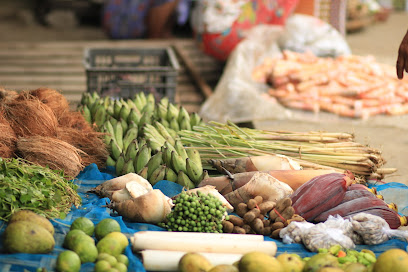
Essential bars & hidden hideouts
K2 Restaurant (By K K)
Discover the flavors of Myanmar at K2 Restaurant, where fresh seafood meets warm hospitality in the heart of Ngapali.
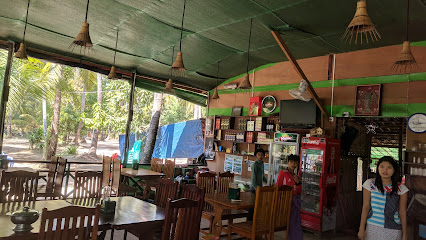
Min Thu Restaurant
Experience the best of Gyeiktaw's seafood at Min Thu Restaurant, where freshness meets flavor in a cozy dining atmosphere.
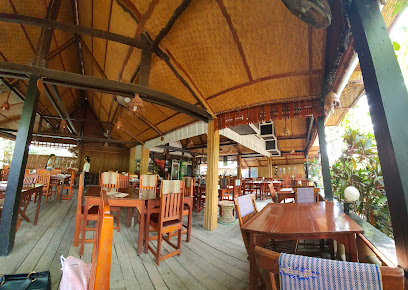
PVI Restaurant
Experience the taste of Myanmar at PVI Restaurant with fresh seafood and traditional dishes, all in a charming coastal atmosphere.
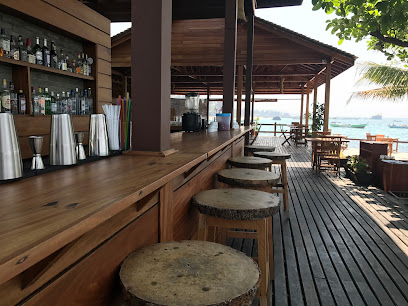
The Green Umbrella
Discover the flavors of Myanmar at The Green Umbrella, a charming restaurant in Zi Phyu Kone offering delightful local dishes in a welcoming atmosphere.
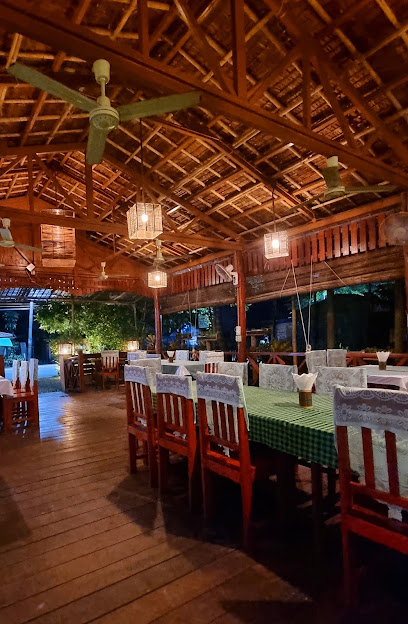
Original Sunset View Beach Bar & Restaurant
Experience stunning sunsets and delightful cuisine at Original Sunset View Beach Bar & Restaurant in Gyeiktaw, a must-visit for every traveler.
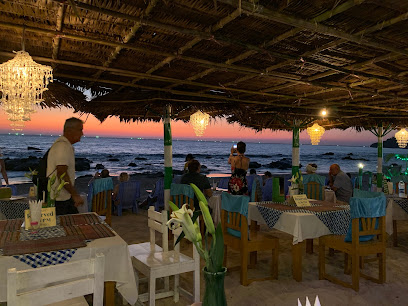
Ocean Pearl
Experience the flavors of the sea at Ocean Pearl, a top-rated restaurant in Zi Phyu Kone, famous for its fresh seafood and stunning ocean views.
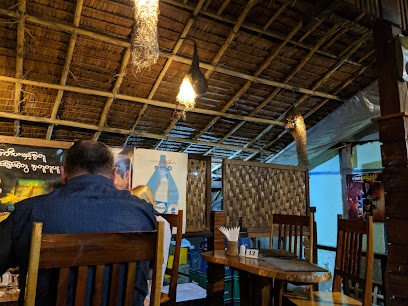
Golden Sea (Restaurant)
Experience the finest seafood dining at Golden Sea Restaurant, where fresh flavors meet breathtaking ocean views in Zi Phyu Kone.
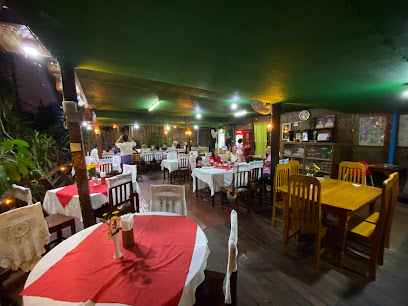
Ngapali Kitchen(Restaurant)
Experience the flavors of the coast at Ngapali Kitchen, where fresh seafood meets vibrant local cuisine in a picturesque beach setting.
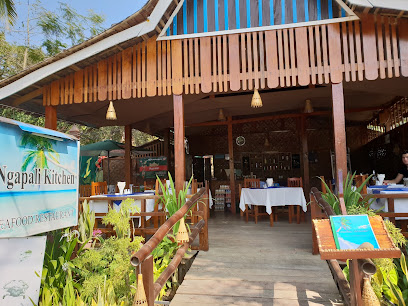
Northen Star Restaurant
Experience the flavors of Ngapali Beach at Northern Star Restaurant, where fresh seafood meets stunning ocean views for an unforgettable dining experience.
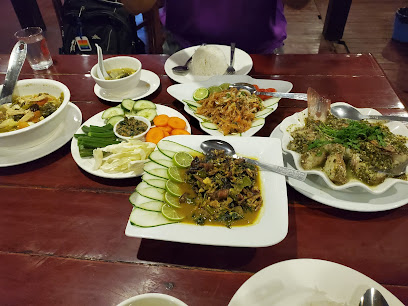
Hi friends Pool Bar
Experience the vibrant atmosphere of Hi Friends Pool Bar in Mya Pyin, a perfect spot for relaxation, refreshing drinks, and socializing.
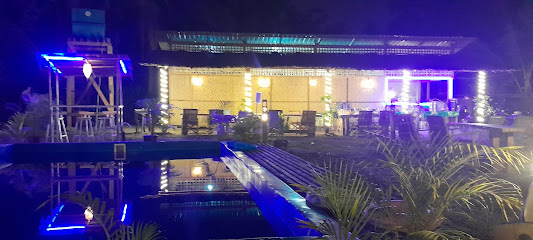
Ko Hla Moe
Discover the lively atmosphere and local flavors at Ko Hla Moe, the ultimate bar experience in Zi Phyu Kone.
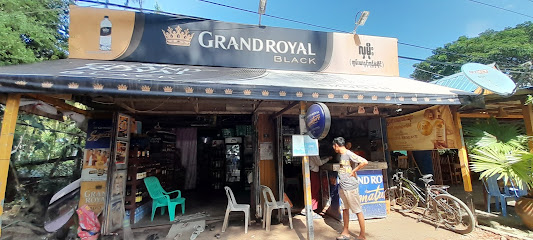
My Garden BBQ & Restaurant
Experience the best BBQ in Zi Phyu Kone at My Garden BBQ & Restaurant, where every meal is a celebration of local flavors in a beautiful garden setting.
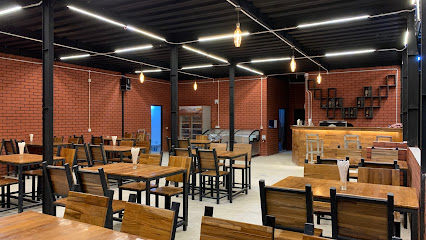
အမေကြီး မုန့်တီ ငါးဖယ်ကြော် (Best in Ngapali)
Discover Amei Gyi Mont Ti in Gyeiktaw for the best fried fish and authentic Burmese cuisine in Ngapali.
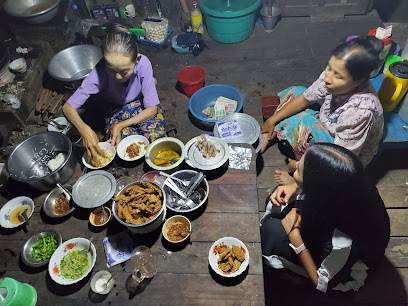
K'Mon's seafood Ngapali
Discover the flavors of the sea at K'Mon's Seafood Ngapali, where every dish offers a taste of Myanmar's coastal paradise.
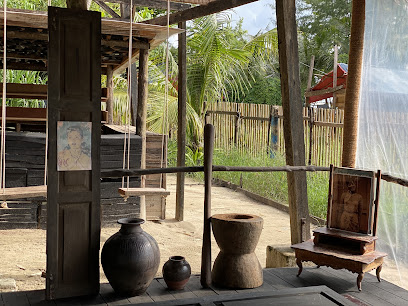
ထိပ်တန်းစည်ဘီယာဆိုင်
Discover the vibrant energy of ထိပ်တန်းစည်ဘီယာဆိုင်, your go-to bar for refreshing drinks and lively ambiance in Ngapali, Myanmar.

Local Phrases
-
- Helloမင်္ဂလာပါ
[mangalabar] - Goodbyeသွားပါ
[swabar] - Yesဟုတ်ပါ
[hutbar] - Noမဟုတ်ပါ
[ma hutbar] - Please/You're welcomeကျေးဇူးပါပါ
[chay zu ba ba] - Thank youကျေးဇူးပါပါ
[chay zu ba ba] - Excuse me/Sorryခဏထက်ပါ
[kun ta ka ba] - How are you?လွန်းလွန်းနဲ့နေ့လည်း
[lann lann ne nei ne lann] - Fine. And you?ကျေးဇူးပါပါ။ သင်လည်းဘယ်လဲ
[chay zu ba ba. sann lay ba lei] - Do you speak English?အဂၤလိပ်သည်ပဲ
[aga leit hnit ba] - I don't understandလိုက်စားမဲ့မသိ
[loke sa mar ma si]
- Helloမင်္ဂလာပါ
-
- I'd like to see the menu, pleaseမီနူလိုပ်သင့်ပါသလား
[minu loat ning ba sa lar] - I don't eat meatမကြိုက်သင့်ပါသလား
[ma kyu sa ning ba sa lar] - Cheers!ကျေးဇူးပါပါ
[chay zu ba ba] - I would like to pay, pleaseငွေငွေချက်သင်ပါသလား
[nei nei chit ning ba sa lar]
- I'd like to see the menu, pleaseမီနူလိုပ်သင့်ပါသလား
-
- Help!အကူညီပါ
[aku yin ba] - Go away!လှပြဇန်ပါ
[hpar zan ba] - Call the Police!ရုံးဆိုင်းဆိုင်ရှင်ပါ
[yone hsone hsone shan ba] - Call a doctor!အဆောင်ဆောင်သင်ပါ
[a htaung htaung sa ba] - I'm lostကြေးတယ်ကြောင်းပါ
[chay tai chyau ba] - I'm illကြေးသော်ပါ
[chay sa ba]
- Help!အကူညီပါ
-
- I'd like to buy...ဝယ်ယူသင့်ပါသလား
[wai yu ning ba sa lar] - I'm just lookingကြေးဇူးလွန်းလွန်းနဲ့နေ့လည်း
[chay zu lann lann ne nei ne lann] - How much is it?အစားဘယ်လဲ
[a sa ba lei] - That's too expensiveဒါမျိုးသားသိစားပါ
[da myo sa thi sa ba] - Can you lower the price?စျေးသွားလေးလျှောက်ပါ
[sei swar lei yao kha ba]
- I'd like to buy...ဝယ်ယူသင့်ပါသလား
-
- What time is it?ဘာနာရီလဲ
[ba nari ba lei] - It's one o'clockတစ်နာရီလဲ
[tac nari ba lei] - Half past (10)(၁၀) နာရီ အလယ်လဲ
[(10) nari a lay ba lei] - Morningနန်းနန်းလဲ
[nan nan ba lei] - Afternoonညန်းနန်းလဲ
[nya nan nan ba lei] - Eveningညန်းနန်းလဲ
[nya nan nan ba lei] - Yesterdayမနေ့လဲ
[mane lei] - Todayယနေ့လဲ
[ya ne lei] - Tomorrowမနက်ဖြန်းလဲ
[ma nay pyan nan ba lei] - 1တစ်
[tac] - 2နှစ်
[hnac] - 3သုံး
[sum] - 4လေး
[lei] - 5ငါး
[nga] - 6ခြောက်
[hraw kha] - 7ခုန်
[kun] - 8ရှစ်
[yet] - 9ကိုး
[ko] - 10ဆယ်
[hcai]
- What time is it?ဘာနာရီလဲ
-
- Where's a/the...?...ဆိုတော်လဲ
[...sio tau ba lei] - What's the address?လိပ်စာလေးမယ်လဲ
[let sa lei ma ya ba lei] - Can you show me (on the map)?မြောက်သွားလေးလျှောက်ပါ
[myauk swar lei yao kha ba] - When's the next (bus)?ညနေ ... ထိုင်းလဲ
[nya ... tuin lei] - A ticket (to ....)လက်မှတ်အဟောင်းလဲ
[lak mhat a htaung lei]
- Where's a/the...?...ဆိုတော်လဲ
History of Ngapali
-
Ngapali, situated on the Bay of Bengal, has a history that dates back to ancient times. Originally a small fishing village, its pristine beaches and abundant seafood attracted settlers and traders. Evidence of early human habitation can be found in the form of ancient pottery and tools discovered in the region, suggesting that Ngapali has been a site of human activity for millennia.
-
During the British colonial period, Ngapali began to gain prominence as a seaside retreat. The British, impressed by its natural beauty, developed it as a holiday destination. Colonial architecture, such as the remnants of British-built bungalows, can still be seen today, blending seamlessly with the local Burmese style.
-
World War II left its mark on Ngapali, as it did on much of Burma. The area saw the presence of Japanese forces, who utilized Burma as a strategic point. Ngapali's beaches were used for military purposes, and remnants of wartime structures can still be found. The war significantly affected the local economy and population.
-
Following Burma's independence from British rule in 1948, Ngapali began to rebuild and develop its tourism industry. The government recognized the potential of Ngapali's natural beauty and invested in infrastructure to support tourism. This period saw the construction of roads, hotels, and other facilities that laid the foundation for Ngapali's modern tourism sector.
-
Ngapali is not only known for its natural beauty but also for its rich cultural heritage. The area is home to several ethnic groups, including the Rakhine people, who have their own distinct customs, traditions, and festivals. The local cuisine, heavily influenced by the sea, features a variety of seafood dishes that are a testament to the region's maritime culture.
-
In recent decades, Ngapali has seen a surge in development, transforming it into a premier tourist destination. Luxury resorts, eco-friendly lodges, and a variety of restaurants have sprung up along the coastline. Despite the rapid development, efforts have been made to preserve the natural environment and local culture, ensuring that Ngapali retains its unique charm.
-
With growing awareness of environmental sustainability, Ngapali has embraced ecotourism. Various initiatives aim to protect the natural landscape, marine life, and local wildlife. Projects such as beach clean-ups, coral reef conservation, and sustainable fishing practices are part of the ongoing efforts to maintain Ngapali's ecological balance while promoting responsible tourism.
Ngapali Essentials
-
Ngapali is located in Rakhine State on the western coast of Myanmar. The nearest airport is Thandwe Airport (SNW), which is approximately 7 kilometers from Ngapali Beach. Thandwe Airport is accessible via domestic flights from Yangon, Mandalay, and other major cities in Myanmar. From Thandwe Airport, you can take a taxi or a hotel shuttle to reach Ngapali. The journey typically takes about 15-20 minutes. Alternatively, you can reach Ngapali by road from Yangon, but the trip can be long and the road conditions may vary.
-
Once in Ngapali, transportation options include bicycles, motorbikes, and tuk-tuks, which are the most convenient ways to get around. Many hotels offer bicycle rentals, allowing you to explore the beach and nearby villages at your own pace. Tuk-tuks are readily available and can be hired for short trips or for a full day. For longer distances, local taxis are available, but it's advisable to negotiate the fare beforehand. Walking is also a great way to explore the beachfront and nearby attractions.
-
The official currency in Myanmar is the Myanmar Kyat (MMK). While some high-end hotels and restaurants in Ngapali accept credit cards, it is advisable to carry cash, especially for smaller establishments and local markets. ATMs are available in Ngapali, but it is wise to withdraw sufficient cash in Yangon or other major cities before traveling to ensure you have enough funds. US dollars are also widely accepted, but make sure the bills are in good condition.
-
Ngapali is generally a safe destination for tourists. However, it is advisable to take standard precautions. Avoid walking alone at night along secluded areas of the beach and keep an eye on your belongings in crowded places. While there are no specific high-crime areas targeting tourists, it is always best to stay vigilant and aware of your surroundings. Petty crimes, such as pickpocketing, can occur, so be cautious with your valuables.
-
In case of emergency, dial 199 for police assistance, and 192 for medical emergencies. Thandwe General Hospital is the nearest medical facility to Ngapali and can handle most emergencies. It is recommended to have travel insurance that covers medical emergencies. For minor health issues, there are pharmacies in Ngapali where you can purchase over-the-counter medications. It is also advisable to carry a basic first aid kit.
-
Fashion: Do dress modestly, especially when visiting religious sites. Avoid wearing revealing clothing. Religion: Do respect local customs and traditions. Always remove your shoes and cover your shoulders and knees when entering temples and pagodas. Public Transport: Do be respectful and give up your seat to elderly passengers. Don’t eat or drink on public transport. Greetings: Do greet people with a friendly smile and a slight bow. A handshake is also acceptable but not common. Eating & Drinking: Do try local delicacies and seafood. Don’t refuse food offerings, as it is considered impolite. Always use your right hand when giving or receiving something.
-
To experience Ngapali like a local, visit the morning fish market where you can see fishermen bringing in their fresh catch. Engage with locals, as they are often friendly and willing to share stories about their culture and way of life. Don’t miss trying the local seafood, which is a highlight of the area. For a unique experience, take a boat trip to nearby islands or hire a bicycle to explore the surrounding villages and countryside.
Trending Landmark in Ngapali
-
Chaung Thar Beach
-
Amazing Ngapali Resort
-
Bayview - the beach resort
-
Amata Resort & Spa, Ngapali
-
Thande Beach Hotel
-
Sandoway Resort
-
PVI Restaurant
-
Ngapali Beach- ငပလီ
-
AZ Family resort hotel
-
Jasmine Ngapali Resort
-
Merciel Retreat & Resort, Ngapali
-
River Top Lodge
-
Yoma Cherry Lodge Ngapali
-
Pristine Mermaid Resort
-
Golden Rose Seafood Restaurant
Nearby Cities to Ngapali
-
Things To Do in Pyay
-
Things To Do in Naypyidaw
-
Things To Do in Sittwe
-
Things To Do in Yangon
-
Things To Do in Mrauk U
-
Things To Do in Kyaiktiyo
-
Things To Do in Bagan
-
Things To Do in Kalaw
-
Things To Do in Inle Lake
-
Things To Do in Mae Hong Son
-
Things To Do in Hpa-An
-
Things To Do in Cox's Bazar
-
Things To Do in Mandalay
-
Things To Do in Pai
-
Things To Do in Pyin Oo Lwin








